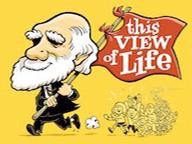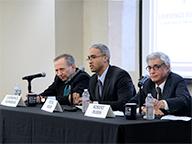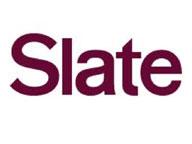Faculty News
—
Prof. Luke Williams's talk on innovation at Legal Tech is highlighted
—

Excerpt from Canadian Lawyer Magazine -- "A mercurial economy and the many ups and downs of the legal profession are changing the game but law firms, particularly Canadian ones, are not the most agile and responsive. But New York University Stern School of Business professor Luke Williams told an audience at Legal Tech today that this is the type of environment that forces disruptive innovation."
Faculty News
—

Excerpt from Canadian Lawyer Magazine -- "A mercurial economy and the many ups and downs of the legal profession are changing the game but law firms, particularly Canadian ones, are not the most agile and responsive. But New York University Stern School of Business professor Luke Williams told an audience at Legal Tech today that this is the type of environment that forces disruptive innovation."





















